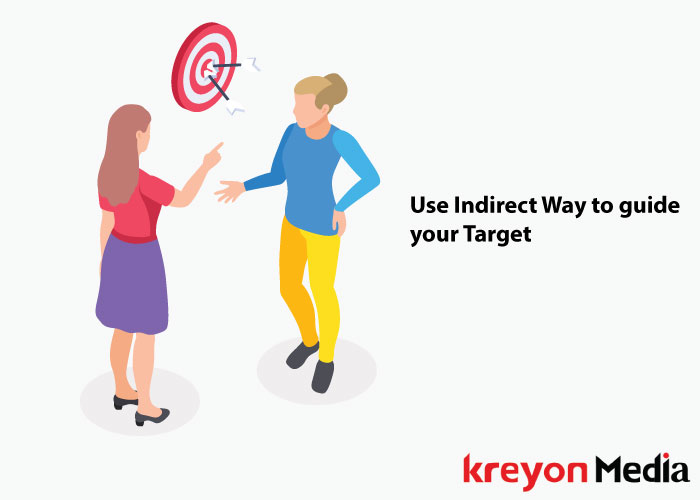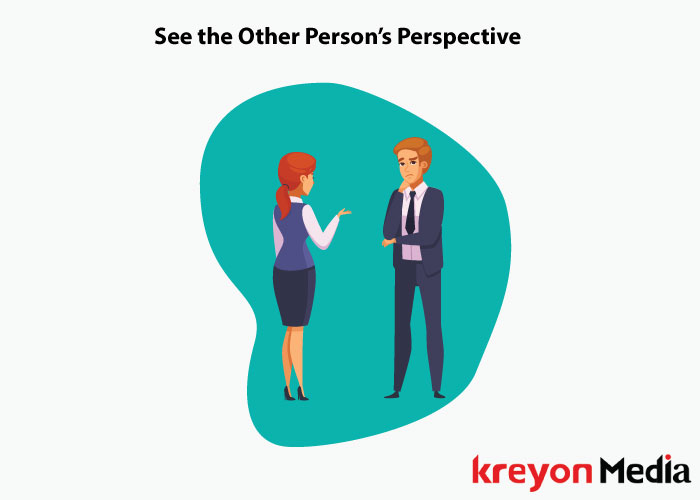
Arguments are part and parcel of communication. The way you put forward your arguments and confront opposition can have a telling impact on your success in life. We’re often faced with situations in personal and professional lives that require us to take sides, yet maintain our relationships.
Arguments and persuasion can be important skills for any professional. However, equally important is to have a pleasant disposition and not to offend the other person.
In the end, it is not about your ego, but facts and taking the right approach that is more important. You cannot win arguments at the cost of your friends & colleagues.
If you make a person feel inferior, you may win the argument, but lose the person. Many cognitive models of emotions and scientific studies prove that humans are driven by feelings not merely reasoning & logic. Here’s a look at some tips you can use to win arguments & still maintain good relations with others.
1. Use Indirect Way to guide your Target

Everyone wants to save their face. People can behave like kids to defend their arguments and when you take a direct approach, they take a defensive approach.
One of the best ways to approach an argument is to take an indirect way to guide the other person. You make your assertions without violating the other person’s point of view. You can encourage them to think and see things differently by having an indirect & third person’s perspective on issues.
2. Show Respect
People often get offended, when they lose arguments. They feel let down in social settings, when their point of view is proven wrong & challenged intellectually.
Use respect, courtesy and utmost graciousness when presenting with a conflicting point of view. The idea is to discuss the pros and cons of something with respect for the other person.
People often find polite manners and language more persuasive than hard arguments. Something like, “I agree with your point. Your opinion is great but if you could also consider these possibilities and then we can follow the best course of action.”
Let the other person think that their idea is good and you are giving them inputs to make it better. Directly pointing to their flaws, drawbacks and shortcomings can backfire. It can make the other person offended and defensive. Ultimately, the idea of an argument is to come to a common ground & take a constructive way forward.
3. Admit, if you are Wrong

You can win people by losing some of the arguments with them, especially when you admit that you were wrong. It shows that you consider the other person’s perspective and have an open mind to change when presented with the right inputs.
Listening objectively to arguments can help you understand things logically. Keep your feelings aside, don’t be afraid to be wrong. It is a sign of a progressive mind to accept mistakes and correct them.
4. Being Friendly
It is easier to persuade the other person to follow you and consider your arguments, when they listen to you. The way you make your arguments expresses a lot about your capabilities to influence the other person.
A friendly approach to presenting facts and information can have a positive impact on the other person. When the other person can see your perspective of things and knows that you mean well, they’re more likely to concede.
5. Common Ground

When you’re discussing passionately and involved in an argument, it shows you & your opponent care about things. There is always a common ground, things that you and the other person agree on. Get the other person to agree with you on the common ground.
Don’t start your discussion by highlighting the differences, but stressing on the agreements. When you are striving for something with a common goal, often arguments can be very constructive in taking the right way forward. By getting the other person to say yes, you build a rapport which makes it comfortable to discuss the differences.
6. Let the other Person Talk
People are often lost in their own thoughts, arguments and fail to let the other person talk. It makes the situation complex. You cannot make good arguments when you don’t listen to the other person.
Give the other person a chance to express themselves and their point of view. When you listen, you can exchange ideas better, you enrich your knowledge, analyse things objectively and make the other person feel important too.
7. See the Other Person’s Perspective

Scientific studies have revealed that empathy, emotions and feelings drive human beings. Daniel Kahneman and Amos Tversky showed in their research that human beings have cognitive biases. What this means is, humans are not always rational & logical. They’re driven by their own biases and not perfect.
When we truly try to see things from other people’s point of view, we can understand their point of reasoning and beliefs. Sometimes a difference in perspective is all it takes to convey your point across to the other person.
8. Empathy & Feelings
The best people are those who can understand the situation of others. They can put them in their shoes and relate to them. The background, past experiences, education and professions etc. shape the attitude of a person.
When you can understand and empathise with the other person, you will be able to connect better. You don’t need to win every argument, but sometimes understanding the other person is all it takes to move forward. Empathising with the other person will even help them see your point of view better for e.g., “If I was in your place I would have done the same thing, or your idea is not bad, but it’s not suitable for this context.”







